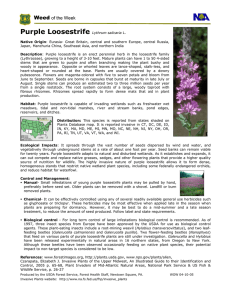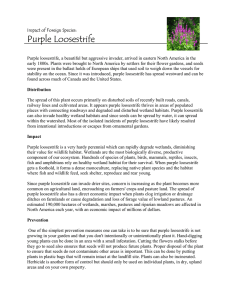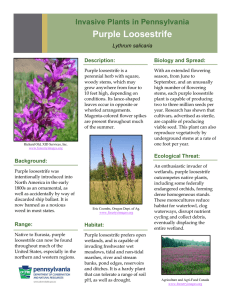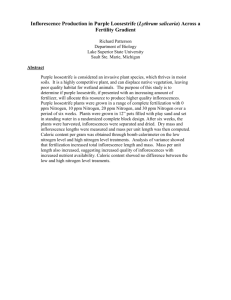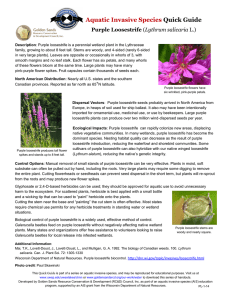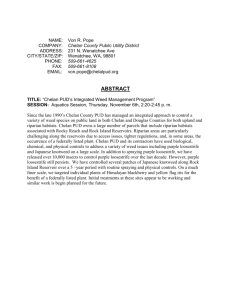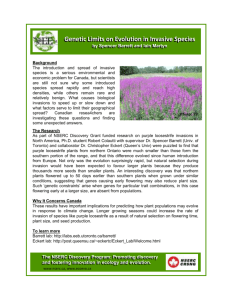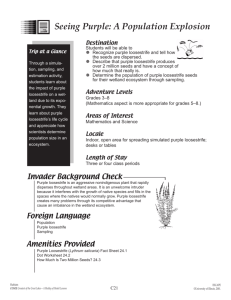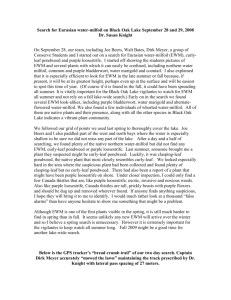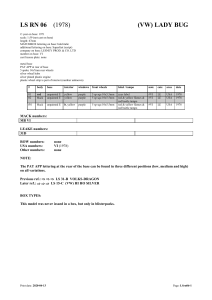flyer - Brandeis University
advertisement
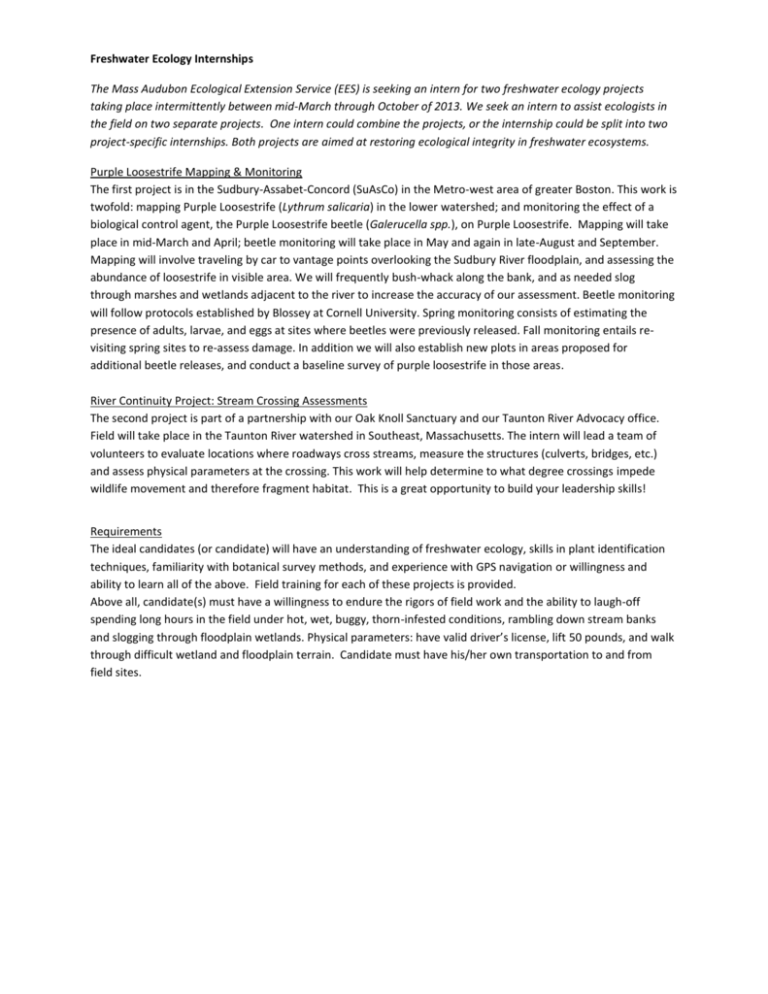
Freshwater Ecology Internships The Mass Audubon Ecological Extension Service (EES) is seeking an intern for two freshwater ecology projects taking place intermittently between mid-March through October of 2013. We seek an intern to assist ecologists in the field on two separate projects. One intern could combine the projects, or the internship could be split into two project-specific internships. Both projects are aimed at restoring ecological integrity in freshwater ecosystems. Purple Loosestrife Mapping & Monitoring The first project is in the Sudbury-Assabet-Concord (SuAsCo) in the Metro-west area of greater Boston. This work is twofold: mapping Purple Loosestrife (Lythrum salicaria) in the lower watershed; and monitoring the effect of a biological control agent, the Purple Loosestrife beetle (Galerucella spp.), on Purple Loosestrife. Mapping will take place in mid-March and April; beetle monitoring will take place in May and again in late-August and September. Mapping will involve traveling by car to vantage points overlooking the Sudbury River floodplain, and assessing the abundance of loosestrife in visible area. We will frequently bush-whack along the bank, and as needed slog through marshes and wetlands adjacent to the river to increase the accuracy of our assessment. Beetle monitoring will follow protocols established by Blossey at Cornell University. Spring monitoring consists of estimating the presence of adults, larvae, and eggs at sites where beetles were previously released. Fall monitoring entails revisiting spring sites to re-assess damage. In addition we will also establish new plots in areas proposed for additional beetle releases, and conduct a baseline survey of purple loosestrife in those areas. River Continuity Project: Stream Crossing Assessments The second project is part of a partnership with our Oak Knoll Sanctuary and our Taunton River Advocacy office. Field will take place in the Taunton River watershed in Southeast, Massachusetts. The intern will lead a team of volunteers to evaluate locations where roadways cross streams, measure the structures (culverts, bridges, etc.) and assess physical parameters at the crossing. This work will help determine to what degree crossings impede wildlife movement and therefore fragment habitat. This is a great opportunity to build your leadership skills! Requirements The ideal candidates (or candidate) will have an understanding of freshwater ecology, skills in plant identification techniques, familiarity with botanical survey methods, and experience with GPS navigation or willingness and ability to learn all of the above. Field training for each of these projects is provided. Above all, candidate(s) must have a willingness to endure the rigors of field work and the ability to laugh-off spending long hours in the field under hot, wet, buggy, thorn-infested conditions, rambling down stream banks and slogging through floodplain wetlands. Physical parameters: have valid driver’s license, lift 50 pounds, and walk through difficult wetland and floodplain terrain. Candidate must have his/her own transportation to and from field sites.

